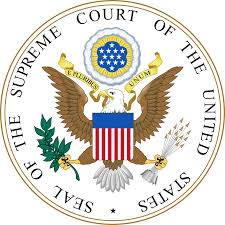
In this post, I’ll explain how advisory juries work. Authorized by Rule 39(c)(1), an advisory jury listens to the evidence at trial and renders a verdict like a normal jury would. However, while a normal jury’s verdict is essentially binding on the court (unless the court concludes that the jury has truly gone astray and had reached a verdict not supported by the evidence at trial, for example, and accordingly enters judgment as a matter of law under Rule 50(b) or a new trial under Rule 59), an advisory jury’s findings are not binding on the court. Instead, the court must enter its own findings of fact and conclusions of law as required by Rule 52 and may ignore the advisory jury’s verdict or use it to guide the court’s determinations.
Standard for Empaneling an Advisory Jury
Rule 39(c) authorizes two actions when a case is not going to be tried to a normal jury: advisory juries under Rule 39(c)(1) and binding juries by consent under Rule 39(c)(2). The threshold requirement for empaneling either type of jury is found in the intro phrase in Rule 39(c), which states that the provisions in that subsection are available in “an action not triable of right by a jury.” Very little case law exists as to the meaning of that simple phrase, but some courts limit the use of an advisory jury to issues as to which the parties have no right to a jury under the applicable case law, such as with an action seeking equitable relief. See Hargrove v. American Cent. Ins. Co., 125 F.2d 225 (10th Cir. 1942); Seven Seas Petroleum, Inc. v. CIBC World Markets Corp., 2012 WL 175415, *4 n.29 (S.D. Tex. 2012). Other courts allow advisory juries where the right to a jury trial originally existed but no party made a timely jury trial demand (thereby allowing that right to lapse). See (American) Lumbermens Mut. Casualty Co. of Illinois v. Timms & Howard, 108 F.2d 497 (2d Cir. 1939); Affordable Communities of Missouri v. EF & A Capital Corp., 295 F.R.D. 389, 391 (E.D. Mo. 2013).
Court’s Broad Discretion
The decision as to whether to empanel an advisory jury lies within the broad discretion of the trial judge. The parties have no right to an advisory jury and, on the flip side, the judge may empanel an advisory jury sua sponte or even over the objections of the parties. Mala v. Crown Bay Marina, Inc., 704 F.3d 239, 249 (3d Cir. 2013). If the judge intends to have a jury act in an advisory capacity, however, it must explicitly designate the jury as advisory before trial; in the absence of such a designation, the jury will be presumed to be acting in a binding capacity. The parties are entitled to understand who will be making the factual findings before trial, and the judge may not wait to decide whether the jury is acting in an advisory capacity until after the jury reaches its verdict. See Thomas v. Broward Cnty. Sheriff’s Off., 71 F.4th 1305 (11th Cir. 2023).
Common Situations for Advisory Juries
Although the court has almost unfettered discretion in deciding whether to empanel an advisory jury and does not even need to provide its reasoning, there are some common situations where courts are more likely to empanel advisory juries. Courts tend to use advisory juries when the determination of the issue in question involves the application of community standards or the “reasonable person” standard. For example, when an employee brought a wrongful termination case and the only remedy available was reinstatement (an equitable remedy not entitling the parties to a jury trial), the court empaneled an advisory jury to determine whether the defendant forced the employee to resign or whether the resignation was voluntary. See Bruce v. Kelly, 2024 WL 63890 (D. Kan. 2024).
Additionally, courts are more likely to use advisory juries when they are already empaneling a binding jury or when the case had been listed as a jury trial and late judicial rulings eliminate the jury issues. Courts recognize that jury trials can be slower and more expensive than bench trials and often take those burdens into account when deciding whether to empanel an advisory jury. Accordingly, when a case involves both legal and equitable issues and a binding jury will be empaneled for the legal issues, no meaningful additional burden is created by asking the jury to render advisory verdicts as to the equitable issues. See Id.
Some courts empanel advisory juries when they have concluded that the parties lack the right to a jury trial but the court found the case law not entirely clear or settled on the issue. In that situation, some courts empanel the advisory jury in the hopes that it would avoid the need for a new trial if the court of appeals concludes that the parties were entitled to a jury trial—the court could then treat the advisory jury as a binding jury. See United States Sec. & Exch. Com’n v. Carebourn Cap., L.P., p. XXX. Some courts, however, hold that the court may not, after the fact, convert an advisory jury verdict into a binding jury verdict. See Williams v. Centerra Grp., LLC, 579 F. Supp. 3d 778, 785 (D.S.C. 2022).
Statutes Mandating Bench Trials
One potential complication can arise when the complaint contains claims arising under statutes that mandate nonjury trials. The Federal Tort Claims Act is one such statute—it waives the United States’ sovereign immunity for certain tort claims but specifies that those claims be tried to a judge, not a jury. Although most courts hold that a judge has the discretion to empanel an advisory jury for FTCA claims, judges are understandably reluctant to do so. They reason that the advisory jury is unlikely to be helpful—if the court would have reached the same conclusion on its own, the advisory jury’s verdict is superfluous and if the court would have reached the opposite conclusion it must ignore the advisory jury’s verdict. See Touko v. United States, 2023 WL 5957570 (D. Md. 2023).
Advice
While the courts enjoy almost total discretion as to whether to empanel an advisory jury, a non-rigorous survey of the case law suggests that the courts far more frequently grant requests for advisory juries than deny them. Thus, if you believe that a jury would be sympathetic to your side of a case but you don’t have the right to a jury trial, a motion for an advisory jury under Rule 39(c)(1) is likely a good idea.
******
Steve is one of the authors of The Federal Litigator, a monthly publication from Thomson Reuters that reports on cases of general interest to those who practice in the federal courts. Each fall, The Federal Litigator reports on amendments to the federal court rules. This article is an excerpt from the April 2025 edition of The Federal Litigator that is reprinted with the publisher’s permission (© 2025 Thomson Reuters). Further reproduction of any kind is strictly prohibited. For further information about this publication, please click here, or call 800.328.9352. Individual case summaries can be accessed through Westlaw. Steve is also one of the authors of the Federal Civil Rules Handbook, an annual publication from Thomson Reuters containing detailed, practical commentary providing a blueprint for the application of the Federal Rules of Civil Procedure and related jurisprudential concepts. To purchase the Handbook, please click here.



